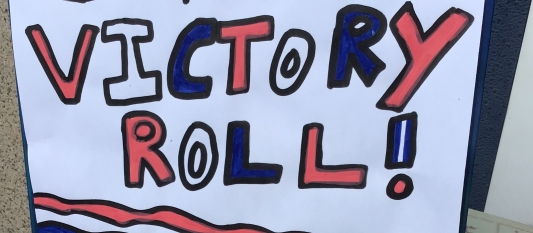
In this section:
Latest News



Pupil Premium
Pupil Premium
'Pupil Premium' is additional funding given to publicly funded schools in England since April 2011, to raise the attainment of disadvantaged children and close the gap between them and their peers. We have a designated 'Pupil Premium Champion' who oversees our provision for children in receipt of Pupil Premium.
Please find a document attached at the bottom that outlines how we allocate the additional funding.
Pupil Premium Strategy Statement December 2024
Pupil Premium Strategy Statement December 2023
Pupil Premium Strategy Statement December 2022
Purpose
The government believes that the Pupil Premium, which is additional to main school funding, is the best way to address the current underlying inequalities between children eligible for free school meals (FSM) and their peers.
This ensures that funding to tackle disadvantage, reaches the children who need it the most.
Eligibility and Funding
A pupil premium is allocated to schools for each child that has been registered for free school meals (FSM) at any point in the last six years.
In addition, schools will also receive money for each looked-after child who has been looked after for one day or more, was adopted from care on or after 30 December 2005, or left care under a special guardianship order or a residence order.
A service premium is available for children whose parents are currently or have served (in the last three years) in the armed forces.
Academically able pupils
The pupil premium is not based on ability.
Research shows that the most academically able children from disadvantaged backgrounds are most at risk of under-performing.
Schools should focus on these children just as much as children with low results.
Use of the pupil premium
It’s up to school leaders to decide how to spend the pupil premium.
This is because the government believe school leaders are best-placed to assess their pupils’ needs and use funding to improve attainment.
Evidence suggests that pupil premium spending is most effective when schools use a tiered approach, but focusing on teaching quality - investing in learning and development for teachers.
Non-eligible pupils
Schools can spend their pupil premium on children who do not meet the eligibility criteria but need extra support.
Coronavirus (COVID-19) Catch-up Premium
The government has announced £1 billion of funding to support children and young people to catch up. This includes a one-off universal £650 million catch-up premium for the 2020 to 2021 academic year to ensure that schools have the support they need to help all pupils make up for lost teaching time.
Schools are able to use this funding for specific activities to support their pupils to catch up for lost teaching over the previous months, in line with the guidance on curriculum expectations for the next academic year.
Schools have the flexibility to spend their funding in the best way for their cohort and circumstances.
Contact us
Mrs Noon (Headteacher)
Whitwick St John the Baptist
Parsonwood Hill
Whitwick
Leicestershire
LE67 5AT
Tel: 01530 832116
Email: whitwick@whitwickce.leics.sch.uk
Home | Privacy Policy & Cookies | Site map | Admin
© 2013 - 2025 Whitwick St John the Baptist. All rights reserved.
